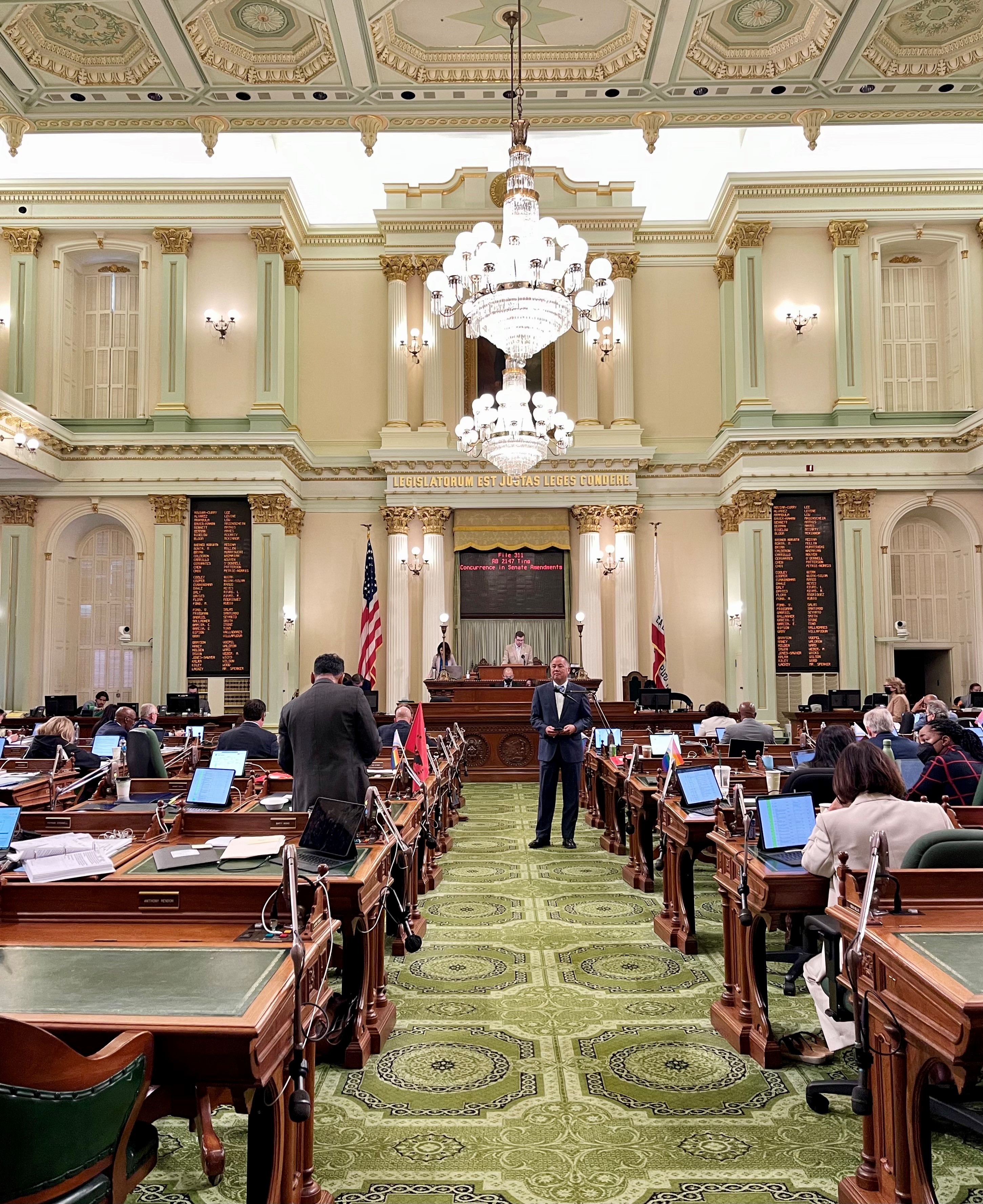
California may soon be legalizing safe street crossings after final legislative approval was given today to AB 2147, The Freedom To Walk Act by Assemblymember Phil Ting (D-San Francisco). The bill now heads to the Governor, who has until September 30th to act.
In Ting’s continued efforts to seek fairness in fines and prevent potentially escalating police stops for jaywalking, his legislation ends law enforcement’s ability to cite pedestrians for jaywalking when roadways are clear. Jaywalking is arbitrarily enforced throughout California, with tickets disproportionately given to people of color and lower-income individuals who cannot afford tickets that often total hundreds of dollars.
“Safely crossing the street should not be a criminal offense. When expensive tickets and unnecessary confrontations with police impact only certain communities, it’s time to reconsider how we use our law enforcement resources and whether our jaywalking laws really do protect pedestrians,” said Ting. “In addition, we should be encouraging people to get out of their cars and walk for health and environmental reasons.”
AB 2147 is Ting’s second attempt to decriminalize jaywalking in California. This year’s version makes technical changes to address the concerns stated in the Governor’s veto message of AB 1238 last year. Instead of repealing the state’s jaywalking laws, the 2022 bill defines when an officer can stop a pedestrian for jaywalking - specified as only when a reasonably careful person would realize there is an immediate danger of a collision. With the Governor’s signature, fewer working families would struggle to pay the costly citation, and police would not be able to use jaywalking as a pretext to detain someone.
"We celebrate the passage of AB 2147, the Freedom to Walk Act, and urge the Governor to sign the bill into law. When we criminalize people for safely crossing the street, we discourage walking and enable discriminatory enforcement. Current law gives rise to harmful police encounters and ends up trapping everyday people in mountains of court debt. It's beyond time to reform our jaywalking laws," said Zal Shroff, Senior Staff Attorney at the Lawyers' Committee for Civil Rights of the San Francisco Bay Area.
California has numerous cases in which a jaywalking stop has gone wrong. In September 2020, San Clemente Police killed Kurt Reinhold after pulling up to him and falsely accusing him of jaywalking. In the Bay Area, Chinedu Okobi was killed nearly four years ago in Millbrae by San Mateo County deputies in an attempt to arrest him for jaywalking. And in 2017, Sacramento Police beat Nandi Cain after stopping him for jaywalking, causing serious injuries. The victims in each of these cases were African American, and video captured each incident. In addition, 2018-2020 data compiled by the California Racial and Identity Profiling Act (RIPA) shows Black Californians are severely overrepresented when it comes to being stopped for jaywalking, up to four-and-a-half times more than their White counterparts.
"Jaywalking laws do more than turn an ordinary and logical behavior into a crime; they also create opportunities for police to racially profile. A jaywalking ticket can turn into a potentially life-threatening police encounter, especially for Black people, who are disproportionately targeted and suffer the most severe consequences of inequitable law enforcement," said Jared Sanchez, Senior Policy Advocate for CalBike.
It should also be noted that under-resourced communities often do not have adequate infrastructure, such as pedestrian crossing buttons or crosswalks. In fact, when UC Berkeley doctoral candidate, Marcel Moran, studied San Francisco’s crosswalks, he found lower-income neighborhoods didn’t have as many as wealthier areas.
Jaywalking laws were enacted in the 1930s by the then-emerging auto industry, which saw the number of deadly car accidents skyrocket in the prior decade and wanted to shift the blame from drivers to pedestrians. Over the years, street designs primarily considered the needs of drivers, failing to account for people who are not in cars.
California has already begun making changes. Up until 2018, it was illegal for people to cross the street at a traffic light when the pedestrian countdown meter began flashing.
If signed into law, AB 2147 would go into effect January 1, 2023.